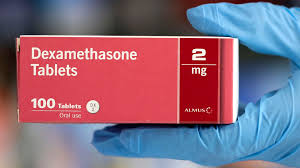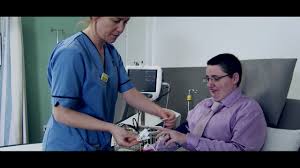 This week’s blog is written by Chris McParland (@chrismcpar), who is a PhD student at University of Glasgow and Clinical Research Nurse with NHS Greater Glasgow and Clyde. In the blog, Chris talks about his recent experiences in moving to a full-time clinical research nurse role during the early months of the COVID-19 pandemic.
This week’s blog is written by Chris McParland (@chrismcpar), who is a PhD student at University of Glasgow and Clinical Research Nurse with NHS Greater Glasgow and Clyde. In the blog, Chris talks about his recent experiences in moving to a full-time clinical research nurse role during the early months of the COVID-19 pandemic.
I started my PhD in December 2019 – a full-time funded clinical academic fellowship at the University of Glasgow (@UofGNurse). As part of this I also work one day a week as a clinical research nurse at the Glasgow Clinical Research Facility (@GlasgowCRF). My first shift was in January, and I was only beginning to find my feet when COVID-19 completely shifted the priorities of research and healthcare. Like many others, I increased my clinical hours to support the COVID research agenda. Learning clinical research nursing during a fast-developing pandemic provided me with an accelerated view of the contribution clinical research teams make in generating an evidence base for clinical practice.
It may seem inevitable now that clinical research nurses would have a key role to play during the pandemic, but in early spring many of us were unsure how our team would be utilised in the developing response to COVID-19. Almost all research studies had been paused. We had nursed in emergency departments, ICUs, busy wards and other clinical areas before becoming clinical research nurses, and we were acutely aware of the pressures being experienced by these areas. I met community-based nurse specialists now caring for people in COVID wards and theatre nurses working in COVID ICUs. Many of us wondered whether our team would also be redeployed to the areas where we had previously worked, to help care for the growing number of people being admitted to hospital with COVID-19.
photo credit: Glasgow Clinical Research Facility (nhsresearchscotland.org.uk)
However, as the UK entered into a national lockdown the possibility of our team being redeployed vanished, as an influx of COVID-related research studies began in rapid succession. Protocols were learned, training was undertaken, new teams were mobilised and shift patterns reshaped to fit the needs of a growing portfolio of COVID studies. Rather than being absorbed into existing clinical teams, clinical research nurses could be found in every area where people with COVID-19 were treated, doing clinical research.
As we approached summer, research priorities moved from the clinical characterisation of COVID-19 to the testing of numerous candidate drugs to treat a condition for which there was still no evidence-based treatment. Nicholas Aldridge writes in his August EBN blog that “staff and the public were looking to research departments across the NHS for information and reassurance”1, and this was also my experience. Drugs such as Dexamethasone, Hydroxychloroquine and Remdesivir featured in the news, and patients and their families already had questions, opinions, hopes and fears attached to specific treatments. Clinical colleagues welcomed us into their wards and departments and supported us to identify and engage with people who might be interested as potential participants, despite the myriad pressures they were facing in their own roles.

As I write this in late September, we are mostly involved in the testing of a candidate vaccine to prevent COVID-19, and in studies investigating the effects of ‘long-COVID’ (also discussed in a recent EBN Blog2). Thanks to the contribution of research teams, clinical colleagues and of course patients, we know so much more now than we did in March about the nature of COVID-193, and there is an evidence-base to support the use of Dexamethasone4 and Remdesivir5 as treatments. Now, as we look towards winter with the challenges and uncertainty it brings, it is also a good time to look back and consider how far we have come, and to reflect on the hard work, determination and collaborative spirit that has brought us here.
- Aldridge N. Clinical Research Delivery Teams and the Covid response: defining a new specialty. BMJ Evidence-Based Nursing Blog, 2020.
- Twycross A, Suett J. Health Care Professionals with Long Covid: Have they been forgotten? BMJ Evidence-Based Nursing Blog, 2020.
- Docherty AB, Harrison EM, Green CA, et al. Features of 20 133 UK patients in hospital with covid-19 using the ISARIC WHO Clinical Characterisation Protocol: prospective observational cohort study. BMJ 2020;369:m1985. doi: 10.1136/bmj.m1985
- The RECOVERY Collaborative Group. Dexamethasone in Hospitalized Patients with Covid-19 — Preliminary Report. New England Journal of Medicine 2020 doi: 10.1056/NEJMoa2021436
- Beigel JH, Tomashek KM, Dodd LE, et al. Remdesivir for the Treatment of Covid-19 — Preliminary Report. New England Journal of Medicine 2020 doi: 10.1056/NEJMoa2007764

